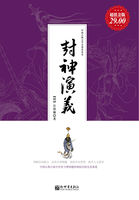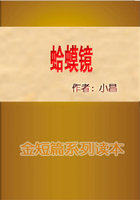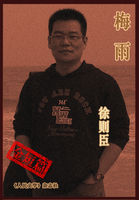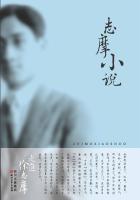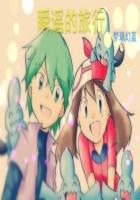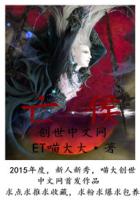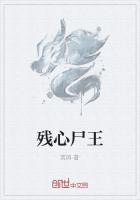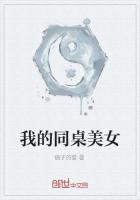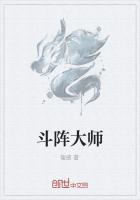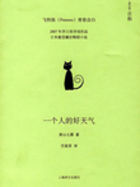25
Clare, restless, went out into the dusk when evening dr ew on, she whohad won him having retired to her chamber.
The night was as sultry as the day.There was no coolness after dark unless on the grass.Roads, gar den-paths, the house-fro nts, the bar ton-walls were warm as hearths, and reflected the noontide temperature into the noctambulist's face.
He sat on the east g ate of the dairy-yard, and knew not what to th ink of himself.Feeling had indeed smothered judgment that day.
Since the sudden embrace, three hours before, the twain h ad kept apart.She seemed stilled, almost alarmed, at what had occurred, while the novelty, unpremeditation, mastery of circu mstance dis quieted him—palpitating, contemplative being that he was.He could hardly realize their true relations to each other as yet, and what th eir mutual bearing should be before third parties thenceforward.
Angel had come as pupil to this dairy in the ideath at his temporary existence here was to be the merest episode in his life, soon passed through and early for gotten; h e had come as to a pla ce fr om which as fro m a scr eened alcove he could calmly view the absorbing world without, and, apostrophizing it with Walt Whitman—
Crowds of men and women attired in the usual costumes,
How curious you are to me!—
resolve upo n a plan fo r plunging into that world anew.But, beho ld, the absorbing scene had been imported hither.What had been the engrossing world had disso lved in to an u ninteresting outer, du mb-show; while her e, in this apparently dim and un impassioned place, novelty had volcanically started up, as it had never, for him; started up else-where.
Every window of th e house being op en Clare cou ld hear across the y ard each trivial sound of the retiring hou sehold.That dairy-house, so hu mble, so insignificant, so purely to him a place of constrained sojourn that he had never hitherto deemed it of su fficient importance to be reconnoitred as an ob iect of any quality whatever in the landscape; what was it now?The aged and lichened brick gables breathed forth“Stay!”The windows s miled, the door coaxed and beckoned, the cr eeper blushed confederacy.A personality within it was so far-reaching in her influence as to spread into and make the bricks, mortar, and whole overhanging sky throb with a burning sensibility.Whose was this mighty personality?Amilkmaid's.
It was amazing, indeed, to find how great a matter the life of the obscure dairy had beco me to h im.And th ough new love was to be heldp artly responsible for this it was not so lely so.Many besides Angel have learn t that the magnitude of lives is not as to their external displacements, but as to their subiective experiences.The impressionable peasant leads a larger, fuller, more dramatic life than th e pachydermatous king.Look ing at it thus he found that life was to be seen of the same magnitude here as elsewhere.
Despite his heterod oxy, faults, and weaknesses, Clare was a man with a conscience.Tess was no insign ificant creature to toy with an d dismiss; but a woman liv ing her precious life—a life which, to herself who endur ed or enjoyed it, possessed as great a dimension as the life of the mightiest to himself.Upon her sensations th e whole world depended to Tess; through her existen ce all her fellowcreatures existed, to her.The universe itself only came into being, for Tess on the particular day in the particular year in which she was born.
This consciousness upon which he had intruded was the single opportunityof existence ever vouchsafed to Tess by an unsympathetic First Cause—her all; her every and only chance.How th en should h e look u pon her as of less consequence than himself; as a pretty trifle to caress and grow weary of; an d not deal in the greatest seriousness w ith the affection which he knew th at he had awakened in her—so fervid and so impressionable as she was under her reserve; in order that it might not agonize and wreck her?
To encounter her daily in the accus tomed manner would be to develop what had begun.Liv ing in such clo se relations, to meet meant to fall into endearment; flesh and blood cou ld not resis t it; and, hav ing arrived at no conclusion as to the issu e of such a tendency, he decid ed to h old aloof for the present from occupations in which they would be mutually engaged.As yet the harm done was small.
But it was n ot easy to carry out the resolution never to appro ach her.He was driven towards her by every heave of his pulse.
He thought he would go and see his friends.It might be possible to sound them upon this.In less than five months his ter m here would have ended, and after a f ew additio nal months sp ent upon oth er far ms he would be f ully equipped in agricu ltural knowledge, and in a p osition to start on his o wn account.Would no t a farmer wan t a wife, and s hould a far mer's wife be a drawing-room wax-f igure, or a wo man who understood far ming?Notwiths-tanding the pleasing answer returned to him by the silence he resolved to go his journey.
One morning when they sat down to breakfast at Talbothays Dairy some maid observed that she had not seen anything of Mr.Clare that day.
“O no, ”said Dairyman Crick.“Mr.Clare has gone hwome to Emminster to spend a few days wi his kinsfolk.”
For four im passioned ones around that tab le the sunshine of the morning went out at a stroke, and the birds muffled their song.But neither girl by word or gesture revealed her blankness.
“He's getting on towards the end of his ti me wi'me, ”added the dairyman, with a ph legm which u nconsciously was brutal; “and so I suppose he is beginning to see about his plans elsewhere.”
“How much longer is he to bide here?”asked lzz Huett, the o nly one ofthe gloom-stricken bevy who could trust her voice with the question.
The others waited for the dairyman's answer ss if their lives hung upon it; Retty, with parted lips, gazing on the table-cloth, Marian with heat added to her redness, Tess throbbing and looking out at the meads.
“Well, I can't mind th e exact day withou t look ing at my memorandum-book, ”replied Crick, with the same intolerable unconcern.“And even that may be al tered a bit.He'll bide to g et a lit tle prac tice in the ca lving ou t a t th e straw-yard, for certain.He'll hang on till the end of the year I should say.”
Four months or so of torturing ecstasy in his society—of“pleasure girdled about with pain.”After that the blackness of unutterable night.
At th is moment of the morning Angel Clare was riding alo ng a narr ow lane ten miles dist ant fr om th e bre akfasters, in the dir ection of his fa ther's vicarage at Emm inster, carry ing, as well as he could, a little basket w hich contained some black-puddings and a bottle of mead, sent by Mrs.Crick, with her kind res pects, to his parents.The white lane s tretched before him, and his eyes were upon it; but they were staring into next year, and not at the lane.He loved her; o ught he to marry her?Dared he to marry her?What would h is mother and his brothers say?What would he himself say a couple of years after the event?That would depend upon whether the germs of staunch comradeship underly, the temporary emotion, or whether it were a sensuous joy in her form only, with no substratum of everlastingness.
His father's hill-surrounded little town, the Tudor churchtower of red stone, the clump of trees near the vicarage, came at last into view beneath him, and he rode down towards the well-known gate.Casting a glance in the d irection of the church before entering his ho me, he beheld standing by the vestry-door a group of gir ls, of ages b etween twelve and sixteen, appar ently awaiting the arrival of some other one, who in a moment became visible; a figure somewhat older than the school-girls, wearing a broad-brimmed hat and highly-starched cambric morning-gown, with a couple of books in her hand.
Clare knew her well.He could not be sure that she observed him; he hoped she did not, so as to render it unneces sary that he should go an d speak to h er, blameless creature that she was.An overpowering reluctance to greet her madehim decide that she had not seen him.The y oung lady was Miss Mercy Chant, the only daughter of his father's neighbour and friend, whom it was his parents'quiet hope that he might wed som e day.She was great at Antinomianism and Bible-classes, and was p lainly going to hold a class now.Clare's mind flew to the impassioned, su mmersteeped heathens in th e Vat Vale, their rosy faces courtpatched with cow-droppings; and to one the most impassioned of them all.
It was on th e impulse of the moment that he had resolved to trot over to Emminster, and hence had not written to apprise his mother and father, aiming, however, to arrive about the breakfast hour, before they should have gone out to their parish duties.He was a little late, and they had already sat down to th e morning meal.The group at table jumped up to welcome him as soon as he entered.They were his f ather and mother, h is br other th e Reverend Felix—curate at a town in the adjoining county, home for the inside of a fortn ight—and his other brother, the Reverend Cuthbert, the classical scholar, and Fellow and Dean of his College, down fro m Cam bridge for the long vacation.H is mother appeared in a cap and silver spectacles, and his father looked what in fact he was—an ea rnest, God-fear ing man, so mewhat g aunt, in y ears ab out sixty-five, his pale face lined with thought and purpose.Over their heads hung the picture of Angel's sister, the eldest of the family, sixteen y ears his senior, who had married a missionary and gone out to Africa.
Old Mr.Clare was a clergyman of a ty pe which, with in the last twenty years, has wellnigh dropped out of contemporary life.A spiritual descendant in the dir ect line fro m W ycliff, Huss, Luther, Ca lvin; an Ev angelical of the Evangelicals, a Conversionist, a man of Apostolic simplicity in life and thought, he had in his raw youth made up his mind once for all on the deeper questions of existence, and admitted no further reasoning on them thenceforward.He was regarded ev en by those of his own date and sch ool of think ing as extreme; while, on the other hand, those totally opposed to him were unwillingly won to admiration for his thoro ughness, and for the remarkable power he showed in dismissing all qu estion as to prin ciples in h is en ergy for apply ing them.He loved Paul of Tarsus, liked St.John, hated St.James as much as he d ared, and regarded with mixed f eelings T imothy, T itus, and Philem on.The New Testament was less a Christiad than a Paul iad t o his in telligence—less a nargument than an intoxication.His creed of determinism was such that it almost amounted to a vice, and quite amounted, on its negative side, to a renunciative philosophy which had cousinship with that of Schopenhauer and Leopardi.He despised the Canons and Rubric, sw ore by the Articles, and deemed himself consistent through the whole categor y—which in a way he might hav e been.One thing he certainly was—sincere.
To the aes thetic, sensu ous, pagan pleasure in natural lif e and lush womanhood which his son Angel had lately been experiencing in Var Vale, his temper would have been antipathetic in a high deg ree, had he either by inquiry or imagination been able to apprehend it.Once upon a time Angel had been so unlucky as to say to his father, in a mo ment of irritation, that it might h ave resulted far better for mankind if Greece had been the source of the religion of modern civilization, and not Palestine; and his f ather's grief was of that blan k deion which could not realize that there might lurk a thousandth part of a truth, much less a h alf truth or a whole truth, in such a prop osition.He had simply preached austerely at Angel for some time after.But the kindness of his heart was such that he never resented any thing for long, and welco med his son today with a smile which was as candidly sweet as a child's.
Angel sat do wn, and th e place felt like home; yet he did no t so much as formerly fee l hi mself on e of the fa mily gath ered there.Every time tha t he returned hither he was conscious of this div ergence, an d since he had last shared in the Vicarage life it had grown even more distinctly foreign to his own than usual.Its transcen dental aspir ations—still unconsciou sly based on the geo-centric view of things, a zenithal paradise, a nadiral hell—were as foreign to his own as if they had been the dreams of people on another planet.Latterly he had seen only Life, felt only the great passionate pulse of exis tence, unwarped, uncontorted, untrammelled by those creeds which futilely attempt to check what wisdom would be content to regulate.
On their par t th ey saw a great dif ference in h im, a growing divergence from the Angel Clare of former times.It was chiefly a difference in his manner that they noticed just now, particularly his bro thers.He was g etting to behave like a farmer; he flung his legs about; the muscles of his face had grown more expressive; his eyes looked as much information as his tongue spoke, and more.The manner of the scholar had nearly disappeared; still more the manner of the drawing-room young man.A prig would have said that he had lost culture, and a prude th at he h ad b ecome coarse.Such was the con tagion of do miciliary fellowship with the Talbothays nymphs and swains.
After breakfast he walked withhis two br others, non evangelical, well-educated, hall-marked y oung men, correct to th eir remo test fibr e; s uch unimpeachable models as are tu rned out y early by the la the of a sy stematic tuition.They were both somewhat short-sighted and when it w as the custom to wear a single eyeglass and string they wore a s ingle eyeglass and string; when it was the custom to wear a double glass they wore a double glass; when it was the custom to wear spe ctacles they wore specta cles s traightway, all withou t reference to the particular variety of defect in their own vision.When Wordsworth was enthron ed they carried pocke t copies; and when Shelley was belittled they allowed him to grow dusty on th eir shelves.When Correggio's Holy Families were admired, they admired Correggio's Holy Families; when he was decried in favour of Velasquez, they sedulously followed suit with out any personal objection.
If th ese two not iced An gel's growing soci al in eptness, be noticed their growing mental lim itations.Felix s eemed to h im all Chur ch; Cuth bert all College.His Diocesan Synod and Visitations were the mainsprings of the world to the one; Cambridge to the other.Each brother candidly recognized that there were a f ew unimportant scores of millions of outsiders in civilized so ciety, persons who were neither University men nor chu rchmen; but they were to be tolerated rather than reckoned with and respected.
They were both dutiful and attentive sons, and were regular in their visits to their parents.Felix, though an offshoot from a far m ore recent point in the devolution of theology than his father, was less selfsacrificing and disinterested.More tolerant th an his father of a contradictory opinion, in its aspect as a danger to its holder, he was less ready than his father to pardon it as a slight to his own teaching.Cuth bert was, up on the who le, th e more lib eral-minded, though, with greater subtlety, he had not so much heart.
As they walked along the hillside Angel's former feeling revived in him—that whatever their advantages by comparison with himself, neither saw or setforth life as it really was lived.Perhaps, as with many men, their opportunities of observation were not so good as their opportunities of expression.Neither had an ad equate con ception of th e complicated f orces a t work outs ide the smooth and gentle current in which they and their associates floated.Neither saw the dif ference between local tru th and univer sal truth; that what the inner world said in the ir c lerical and a cademic hear ing was quite a different thing from what the outer world was thinking.
“I suppose it is far ming or nothing for you now, my dear fellow, ”Felix was saying, among other things, to his youngest brother, as he looked thro ugh his spectacles at the distant fields with sad austerity.“And, therefore, we must make the best of it.But I do entreat y ou to end eavour to keep as much as possible in touch with moral ideals.Far ming, o f course, means roughin g it externally; but high thinking may go with plain living, nevertheless.”
“Of course it may, ”said Angel.“Was it not proved nineteen hundred years ago—if I may trespass upon your domain a little?Why should you think, Felix, that I am likely to drop my high thinking and my moral ideals?”
“Well, I fan cied, fro m the tone of y our letters and our conv ersation—it may be fancy only—that you were somehow losing intellectual grasp.Hasn't it struck you, Cuthbert?”
“Now, Felix, ”said Angel drily, “we are very good friends, you know; each of us treading our allotted circles; but if it comes to intellectual grasp, I think you, ss a contented dog matist, had better leave mine alone, and inquire what has become of yours.”
They returne d down the hill to d inner, which wa s fixed a t a ny time a t which their father's and mother's morning work in the parish usually concluded.Conveinence as regarded afternoon callers was th e last thing to enter into the consideration of uns elfish Mr.and Mrs.Clar e; though the three sons were sufficiently in unison on this matter to wish that their parents would conform a little to modern notions.
The walk h ad made them hungry, Angel in particular, who was now an outdoor man, accusto med to th e pro fuse dap es inernptee of the d airyman's somewhat coarsely-laden table.But neither of the old people had arrived, and it was not till the sons were almost tired of waiting that their parents entered.Theself-denying pair h ad been occup ied in coaxing the appetites of some of their sick par ishioners, who m they, somewhat inconsistently, tried to keep imprisoned in the flesh, their own appetites being quite forgotten.
The f amily sat down to tab le, an d a frug al meal o f c old vinds wa s deposited before them.Angel looked round for Mrs.Crick's black-puddings, which he had directed to be nicely grilled, as they did them at the dairy, and of which he wished his father and mother to appreciate th e marvellous her bal savours as highly as he did himself.
“Ah!you are looking fo r the black-puddings, my dear bo y, ”observed Clare's mother.“But I am sure you will not mind doing without them, I am sure your father and I shall no t, when you know the reason.I suggested to h im that we should take Mrs.Crick's kind present to the children of th e man who can earn nothing just now because of his attacks of delirium tremens; and he agreed that it would be a great pleasure to them; so we did.”
“Of course, ”said Angel cheerfully, looking round for the mead.
“I found the mead so extr emely alcoholic, ”continued his mother, “that it was quite un fit for use as a bev erage, but as valuable as ru m or brandy in an emergency; so I have put it in my medicine-closet.”
“We never drink spirits at this table, on principle, ”added his father.
“But what shall I tell the dairyman's wife?”said Angel.
“The truth, of course, ”said his father.
“I rather wanted to say we enjoyed the mead and the black-puddings very much.She is a kind, jolly sort of body, and is sure to ask me directly I return.”
“You cannot, if we did not.”Mr.Clare answered lucidly.
“Ah—no; though that mead was a drop of pretty tipple.”
“A what?”said Cuthbert and Felix both.
“Oh—'tis an expression they use down at T albothays, ”rep lied Angel, blushing.He felt th at his parents wer e right in their practice if wrong in their want of sentiment, and said no more.
26
It was not till the evening, af ter family prayers, tha t Angel foun dopportunity of broach ing to his f ather one or two subiects near his heart.He had strung himself up to the purpose while kneeling behind his brothers on thecarpet, studying the little nails in the heels of their walking boots.When the service was over they went out of th e room with their mother, and Mr.Clare and himself were left alone.
The young man firs t discussed with the elder h is plans for th e attainment of his position as a farmer on an extensive scale—either in England or in th e Colonies.His father then told him that, as he had not been put to the expense of sending Angel u p to Cam bridge, h e had felt it his du ty to set by a su m o f money every year towards the purchase or lease of land for him some day, that he might not feel himself unduly slighted.
“As far as worldly wealth goes, ”con tinued his father, “you will no doubt stand far superior to your brothers in a few years.”
This considerateness on old Mr.Clare's part led Angel onward to the other and dearer subject.He o bserved to his father that he was then six-and-twenty, and that when he should start in the farming business he would require eyes in the back of his head to see to all matters—some one would be necessary to superintend the do mestic labours of his establish ment wh ilst he was af ield.Would it not be well, therefore, for him to marry?
His father seemed to think this idea not unreasonable; and then Angel put the question—
“What kind of wife do y ou think would be best for me as a thrif ty hard-working farmer?”
“A truly Christian woman, who will be a help and a comfort to you in your goings-out and y our comings-in.Beyond that, it r eally matters little.Such an one can be f ound; indeed, my earnest-minded friend and neighbour, Dr.Chant—”
“But ought s he not primarily to b e able to milk cows, churn go od butter, make immense cheeses; know how to sit hens and turkeys, and rear chickens, to direct a field of labourers in an emergency, and estimate th e value o f sheep and calves?”
“Yes; a farmer's wife; yes, certainly.It would be desirable.”Mr.Clare, the elder, had plainly never thought of these points before.“I was going to add, ”he said, “that for a pure and saintly woman you will not find one more to your true advantage, and cer tainly not more to your mother's mind and my own, th anyour friend Mercy, whom you used to show a certain interest in.It is tr ue that my neighbour Chant's daughter has lately caught up the fashion of the younger clergy round about us fo r decor ating the Communion-table—altar, as I was shocked to hear her call it one day—with flowers and other stuff on f estival occasions.But her father, who is quite as opposed to such flummery as I, say s that can be cured.It is a mere girlish outbreak w hich, I am sure, will no t be permanent.”
“Yes, yes; Mercy is good and devout, I know.But, father, don't you think that a young woman equally pure and virtuous as Miss Chant, but one who, in place of that lady's ecclesiastical a ccomplishments, understands the du ties of farm life as well as a farmer himself, would suit me infinitely better?”

